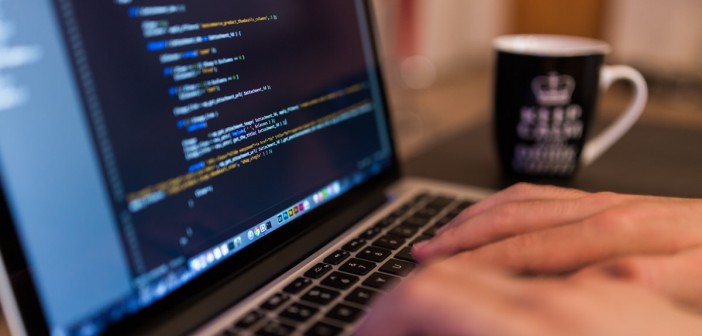Top 10 Tips To Protect Yourself From Hackers

Top 10 Android Hacking Apps and Tools Of 2015 for hackers and security researchers
July 2, 2016
Pokemon Go servers ‘HACKED by PoodleCorp’ Using DDoS attack
July 18, 2016Follow these Top 10 Tech Security Tips To Keep Yourself Safe From Hackers
If you are surfing the net or your computer is linked in anyway to Internet, you would be aware of the risks that cyber criminals pose to you. Computer security, also known as cybersecurity or IT security, is the protection of information systems from theft or damage to the hardware, the software, and to the information on them, as well as from disruption or misdirection of the services they provide. On the other hand, data security means protecting data, such as a database, from destructive forces and from the unwanted actions of unauthorized users.
Every computer user needs to know the basic things to keep their device and data secure. Given below are the few tips and habits that can help you:
1. Frequently Review Your App Permissions and Security Settings
Lastly, you still have to be watchful and make sure your software is always up-to-date besides following the above steps. Always remember to update the router firmware or regularly clean up app permissions, such as Facebook, Twitter, Google or use a site like MyPermissions to clean up multiple services. You can even get a bonus for keeping up with your security needs, as Google sometimes offers free storage just for doing a security check.
2. Use Two-Factor Verification
Two-factor authentication offers the extra layer of security that protects you in case your password gets stolen. Turn this feature on in all the places where you can use TwoFactorAuth. Further, if you lose your phone (most often used as the authentication device), you can still get back into your account if you plan ahead.
3. Use A Password Manager
It is impossible to remember every password for each and every site and service you use. That’s where password managers come handy. While security and convenience are the features that you need to look for, however, select the password that has the features you need.
4. Don’t Use Public Wi-Fi Without A VPN
While using public Wi-Fi, it is important to use a network that has security. To stay safe on public Wi-Fi networks, your best defense will be to use a VPN (Virtual Private Network), which keeps you safe even in other conditions too.
5. Never Send Sensitive Information Over Email Unless It’s Encrypted
Sensitive information, such as your bank info, social security number, tax returns, or confidential business info, should never be sent over email without encryption. It’s too risky. Encrypt files with one of these tools before sending them or use a service like super simple ProtonMail or encrypt your emails with PGP. Encrypt all the things.
6. Lock Down Your Wireless Router
The first line of defense for your home network is your router. To keep your Wi-Fi secure, you need to change the router’s administrator login, use WPA2 (AES) encryption, and change other basic settings.
7. Install the Best Antivirus and Anti-Malware Software
To keep viruses and malware at bay, it is suggested that you use one antivirus tool, such as Sophos Anti-Virus for Mac or such as Avira for Windows, as well as an anti-malware tool for on-demand scanning, such as Malwarebytes
8. Always Back Up Your Computer/Smartphone
It is vital to frequently backup and make duplicate copies of all your important data to keep it safe. You can use a backup system with CrashPlan, or Windows’ built-in tools or Mac’s Time Machine.
9. Make Your Phone’s Lock Code More Secure
Many of us consider that the default 4-digit PIN is the most secure locking code. However, it is not. It is always better to add an extra digit to make your phone more secure. For iOS and Android, go to settings and add one more digit to make your phone’s lock code more. Further, Android also has lock screen tools that lets you enhance your phone’s security. Lastly, it is recommended to change your PIN if it’s one of these.
10. Look Out for Social Engineering Attacks
Social engineering is the biggest security concern these days, as cyber thieves and hackers smartly gain access to your secure information either through mimicking other companies, phishing and other common strategies. You need to be careful of all the suspicious phone calls, emails, links and other communications that you receive. Also, it is known that most of the data breaches come from internal sources. Hence, awareness is the important key, as it may be astonishing to know that even security experts can be easily tricked or hacked into.
If you follow the above procedures, you will be always be safe surfing the Internet.


